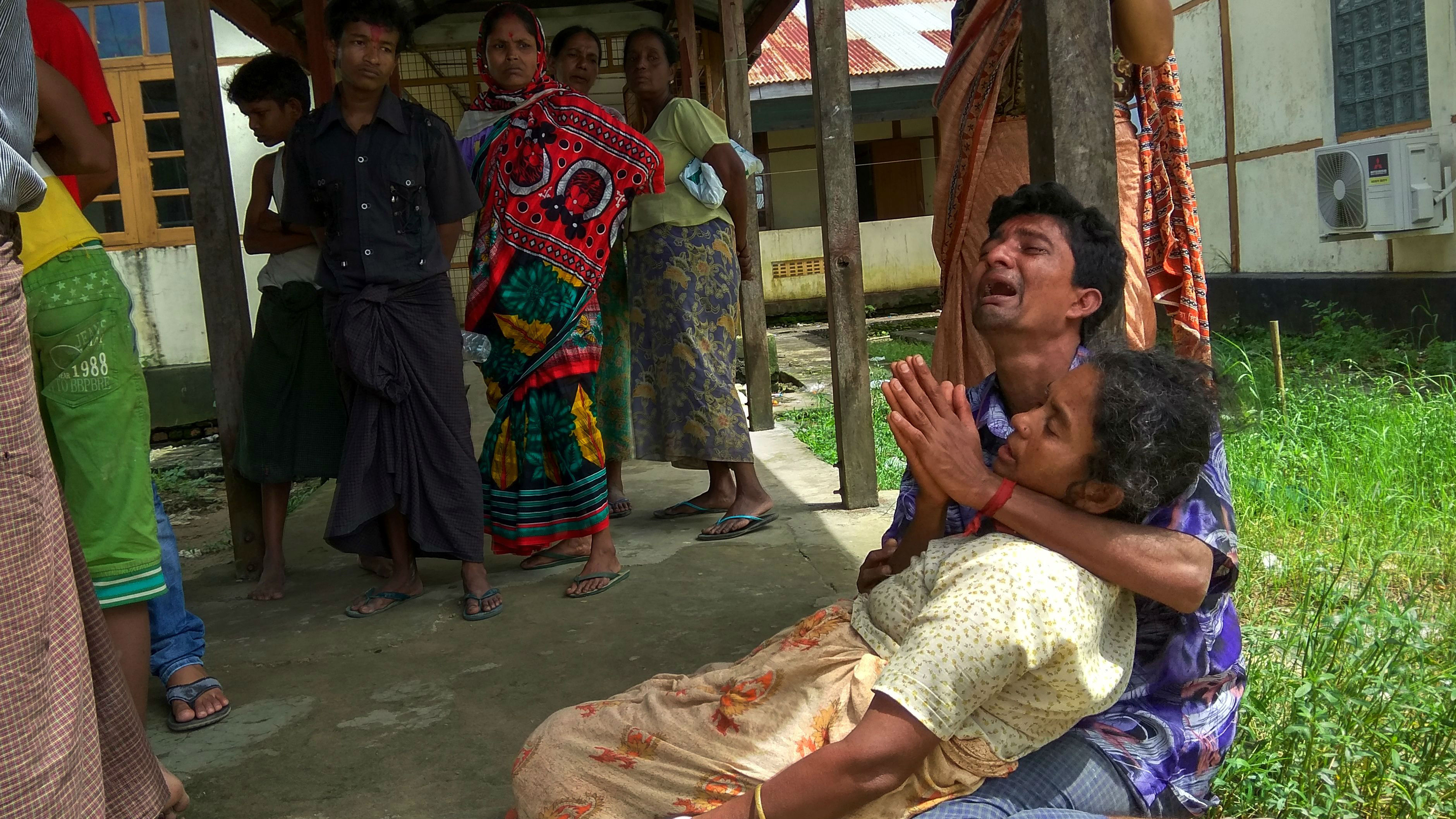What’s happening to the Rohingya?
Two years on from the start of a major humanitarian crisis, the Rohingya are still refusing to go home

A free daily email with the biggest news stories of the day – and the best features from TheWeek.com
You are now subscribed
Your newsletter sign-up was successful
An attempt to return thousands of Rohingya Muslims to their homes in Myanmar has been called off after the persecuted minority rebuffed government claims that they would be safe.
Officials in Myanmar had approved the return of more than 3,000 Rohingya from neighbouring Bangladesh, beginning this week.
However, buses and trucks dispatched by the Bangladeshi government arrived at refugee camps, residents refused to board them. A government official reported that four families in a refugee camp – or about 18 people – had “initially expressed interest in going back”, The Guardian says, but were “dissuaded by fellow refugees”.
The Week
Escape your echo chamber. Get the facts behind the news, plus analysis from multiple perspectives.

Sign up for The Week's Free Newsletters
From our morning news briefing to a weekly Good News Newsletter, get the best of The Week delivered directly to your inbox.
From our morning news briefing to a weekly Good News Newsletter, get the best of The Week delivered directly to your inbox.
The Rohingya refugees expressed concerns that they would be refused access to their home villages, denied their rights, or exposed to violence.
“The Myanmar government raped us, and killed us. So we need security. Without security we will never go back,” Rohingya leader Nosima said in a statement.
After this week’s failed repatriation attempt, further pressure is being placed on the government of Myanmar, which has come under fire for both its role in forcing the Rohingya out of Rakhine state and their seeming disinterest in bringing them back into the country.
Mohammad Abul Kalam, Bangladesh’s refugee relief and repatriation commissioner, said Bangladesh had “done our best to help the Rohingya return to their homes”, adding that it was now Myanmar’s turn to help defuse the situation “sincerely and convincingly”.
A free daily email with the biggest news stories of the day – and the best features from TheWeek.com
“None of the listed refugees turned up expressing their willingness to return to Myanmar today”, he said, adding that “most Rohingya… said that they were very afraid of their physical safety in Rakhine and this is the main reason they do not want to go to Myanmar now”.
What is happening to the Rohingya and are we any closer to a resolution?
Who are the Rohingya?
The Rohingya people are an ethnic Muslim group who reside principally in Rakhine, a western coastal state of Buddhist-majority Myanmar.
They are widely despised in Myanmar, where the government views them as illegal migrants from Bangladesh, despite some Rohingya communities having lived in Rakhine for centuries.
Denied their fundamental rights, the Rohingya have been described as "the world's most persecuted people", says the BBC.
"Rejected by the country they call home and unwanted by its neighbours, the Rohingya are impoverished, virtually stateless and have been fleeing Myanmar in droves and for decades," the broadcaster adds.
What has happened to them in recent years?
The plight of the Rohingya people first made international headlines in 2015 when thousands of refugees were left stranded on boats off the coast of Rakhine State, with no food or water, because no country was willing to accept them.
By August 2017, with tensions between the Rohingya and the country’s majority Buddhist population at an all-time high, Myanmar’s army and police launched a brutal military crackdown on the Rohingya in Rakhine state. The government claimed the intervention was aimed at Muslim insurgents, but reports quickly emerged of atrocities against civilians.
The United Nations (UN), however, has repeatedly referred to the army’s actions as “genocide”, an allegation Myanmar officials including the country’s leader Aung San Suu Kyi strenuously deny.
At least 900,000 Rohingya have sought refuge in neighbouring Bangladesh, sparking a major humanitarian crisis. However, earlier this year, Bangladeshi Foreign Secretary Shahidul Haque told the United Nations Security Council that the country could not accept any more refugees unless of those already there agreed to return home.
Is it safe for them to return to Myanmar?
The UN states that a return of the Rohingya people to Myanmar must be a “voluntary, safe and dignified” one, and the government of Myanmar must ensure that their rights and freedoms are secured once they return.
However, a recent report by the Australian Strategic Policy Institute (ASPI) earlier this year found “no evidence of widespread preparation for Rohingya refugees to return to safe and dignified conditions”, and UN observers admit there has so far been no evidence that Myanmar is even attempting to meet the criteria.
Human Rights Watch issued a statement on Thursday accusing the Myanmar government of neglecting to “address the systematic persecution and violence against the Rohingya”, meaning refugees “have every reason to fear for their safety if they return”.
Indeed, The Guardian reports that the “burning and destruction of Rohingya villages by security forces” has continued into 2019, meaning that there are now “no homes for the Rohingya to return to” even if they were repatriated.
The Bangkok Post paints an even bleaker picture of the current situation, reporting that sources within the camps believe “tension is rising as most refugees are unsure of the future, the fear is that the [repatriation] process may become mandatory”.